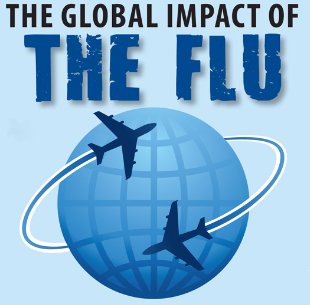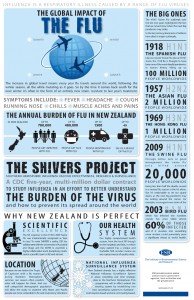Why do some people die from the flu and others don’t? New Zealand researchers have been awarded a grant from the US government to find out.
 Researchers from Environment Science and research (ESR), the University of Auckland the University of Otago have won a $9 million grant from the Unites States Centers for Disease Control and Prevention to explore how the common flu (or winter flu) causes hospitalistions and fatalities.
Researchers from Environment Science and research (ESR), the University of Auckland the University of Otago have won a $9 million grant from the Unites States Centers for Disease Control and Prevention to explore how the common flu (or winter flu) causes hospitalistions and fatalities.
Dubbed SHIVERS (Southern Hemisphere Influenza Vaccine Effectiveness Research and Surveillance), the project will look at how the influenza virus and other respiratory pathogens spread through populations, over five years, starting next year.
SHIVERS Programme Leader, ESR’s Dr Virginia Hope, said:
“The SHIVERS project is a comprehensive investigation of influenza epidemiology, etiology and immunology as well as influenza vaccine effectiveness. One of the major themes of the SHIVERS project is to identify those factors that affect whether or not someone gets influenza, and those risk groups that influenza control measures should be targeted at.”
The SHIVERS project has been aptly summed up in the following infographic kindly provided by ESR (click to enlarge).
The research announcement has received wide media coverage:
New Zealand Herald: NZ institute wins US flu contract
TVNZ News: World flu coup for Kiwi scientists
NewsTalk ZB: NZ scientists to lead international flu study
The Press (and other Fairfax papers): US asks NZ why people die of flu
Radio New Zealand: Flu research contract won by NZ
TV3 News: World flu coup for Kiwi scientists
